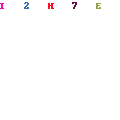 关于2011年6月组织学术型硕士研究生学位英语考试的通知
关于2011年6月组织学术型硕士研究生学位英语考试的通知
各学院:
经研究决定,我校将在2011年6月29日举行学术型硕士研究生学位英语考试,现将有关事项通知如下:
一、考试对象
2010级统招学术型硕士研究生(非英语专业)和2009级统招学术型硕士研究生(非英语专业)未通过硕士学位英语考试者。
二、考试时间
2011年6月29日(周三),上午笔试,下午口试。
考试安排和地点另行通知。
三、考试形式
1、考试形式:笔试(占80%)和口试(占20%)
2、考试题型
笔试:听力(15%)、阅读理解(20%)、翻译(20%)、写作(25%)
口试:
题目以涉及社会、文化、历史、经济、生活等有关的话题。每组口试题为10个,口试topics考前一个月下发给考生准备,口试时由每组考生随机抽取1个topic,考试以5人为一组的小组讨论方式进行,考生自由发言,最后,每位考生用1分钟时间总结自己的观点。考官根据考生小组讨论中的表现评分,考生不能背诵课文式的发表观点,每组考生考试时间在15—20分钟。口试topics附后。
四、模拟训练
为了使考生熟悉和适应考试题型,研究生院将提供一套往年试题,见附件,请需要的同学自行到研究生院网站上下载。
五、报名程序
1、2010级学术型硕士研究生不需填写报名表,所有研究生将由研究生院统一安排考场。除特殊原因外,不能缺考,如有不能参加考试者,由各学院报研究生院培养办公室审批。
2、2009级学术型硕士研究生填写《学术型硕士研究生学位英语考试补考报名表》,在5月27日之前交研究生院培养办公室。
六、学位英语考试分数构成和合格标准
1、学位英语考试最终分数构成
学位英语考试成绩=本学期平时成绩(占20%)+考试成绩(占80%)
2、学位英语考试合格标准
音乐学院、体育学院、美术学院所属各专业,55分合格,其他专业60分合格
七、学位英语考试和第二学期英语期末考试合并
为了减轻研究生考试负担,实行第二学期英语期末考试和学位英语考试合二为一,第二学期英语成绩用学位英语考试成绩折算,分数折算标准如下表:
| 学位英语考试分数 | 第二学期英语成绩折算分数 | |
| 一般专业 (除音乐、体育、美术专业) | 特殊专业 (音乐、体育、美术专业) | |
| 55—59 | —— | 75 |
| 60—64 | 75 | 75 |
| 65—69 | 80 | 80 |
| 70—74 | 85 | 85 |
| 75—79 | 90 | 90 |
| 80以上 | 95 | 95 |
七、有关事项
1、考试实行标准化考试(30人/考场)
2、研究生带身份证和研究生证参加考试,严禁代考,舞弊考生除按《研究生违纪处分条例》进行处理外,取消今后学位英语考试资格。
3、详细考试安排另行通知,请研究生认真复习,迎接考试。
研究生院
二0一一年五月十六日
附件:(点击下载)
2011年6月29日硕士学位英语考试口试topics
1、Do you think that the construction of an underground system can solve the traffic congestion in Nanchang? Why or why not?
2、Some people comment that the present Chinese educational system is too examination-oriented and not very successful in developing students’ creativity. What do you think of it?
3、Have you been a volunteer? Do you think that Chinese youth should be encouraged to do more volunteer work? What are the benefits of being a volunteer?
4、Should the government build nuclear power stations? Why or why not?
5、In the present society, are people getting more tolerant or critical? Illustrate your point.
6、Should universities offer more practical subjects instead of theoretical ones?
7、The water resource is getting more and more scarce. What do you think are effective methods of water preservation?
8、Do you worry about the food you eat? How does the food safety issue influence our lives in China?
9、How should we prevent plagiarism in undergraduates’ or even postgraduates’ thesis writing?
10、Choose one of the Chinese festivals and say something about the origin of it.


